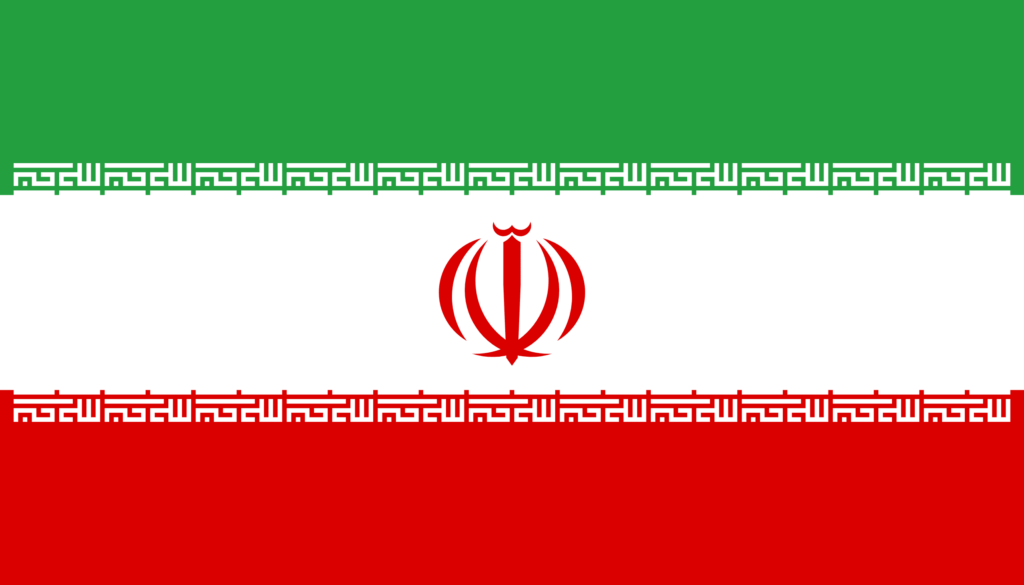The flag of Belarus stands as a vibrant beacon of the nation’s identity, encapsulating its cultural essence and sovereign spirit.
Officially adopted in its current form in 1995 and later modified in 2012 to reflect a post-Soviet reality, this emblem serves not just as a national symbol but as a canvas reflecting the country’s legacy and contemporary values.
Belarus Flag

The Belarusian flag presents two horizontal bands alongside a vertical, patterned stripe at the hoist. This pattern is reminiscent of traditional Belarusian textiles, lending the flag a distinctive cultural signature. Its design is streamlined yet symbolic, reflecting a blend of modernity and heritage unique to Belarus.
Belarus Flag: Color Palette

Belarus Flag Emoji: 🇧🇾
The color palette of the Belarusian flag is purposeful and resonant, chosen to reflect the nation’s character and values without delving into the specific meanings of each hue.
These colors stand as a testament to Belarus’s visual identity, setting the stage for deeper exploration into the individual significance of each.
Meaning of Each Color

Red
The vibrant red band on the flag of Belarus represents the nation’s enduring valor and the blood shed by its defenders.
It is a color that resonates with the life force and bravery of the Belarusian people, echoing their resilience and determination throughout history.
Green
The green stripe symbolizes the fertility of the Belarusian lands, the beauty of its natural landscapes, and the environmental richness.
It stands for growth, renewal, and hope for a future that cherishes and protects the bountiful nature of the country.
Patterned White Stripe
The ornamental white stripe, adorned with traditional red patterns, signifies the cultural heritage and the peaceful aspirations of Belarus. It reflects the purity of the nation’s quest for freedom and the intricate beauty of its cultural traditions.
The patterns are a testament to the artistic legacy and the unyielding desire for self-determination among Belarusians.
Belarus Coat of Arms

The emblem of Belarus is a symbol of the nation’s pride and sovereignty, combining traditional elements that reflect its rich agricultural heritage and natural beauty.
At its heart, the emblem portrays a sense of unity and the forward-looking spirit of the Belarusian people. It is crowned with a star, suggesting a bright future, while the globe and wheat signify the country’s place in the world and its bountiful resources.
The overall design encapsulates Belarus’s journey from its historical roots to its hope for a prosperous and harmonious future.
Historical Evolution and the Meaning Behind Changes
The flag of Belarus has seen several revisions reflecting shifts in the nation’s political landscape and cultural identity.
Initially associated with the red and white colors of the Pahonia during the Polish-Lithuanian Commonwealth, Belarus adopted a white-red-white tricolor after WWI to symbolize newfound independence.

Under Soviet rule, the flag was redesigned to feature the ubiquitous red of the USSR and included a green stripe, indicating Belarus’s agricultural significance. After the fall of the Soviet Union, Belarus briefly returned to the historic white-red-white banner.
In 1995, a referendum led to the current flag, retaining Soviet-era red and green while introducing a traditional Belarusian pattern. This design aimed to merge historical and cultural elements with reminders of its recent past, showcasing the country’s complex heritage and identity.
Overall Symbolic Meaning of the Flag

The flag of Belarus stands as a testament to the nation’s enduring saga, weaving together the threads of its rich traditions, the resilience of its people, and the natural bounty of its landscapes.
This emblem is not merely a marker of supremacy but a beacon that encapsulates the collective journey and aspirations of a forward-looking nation anchored in the depth of its history.
Similar Flags to the Flag of Belarus
Flags that share a resemblance with the flag of Belarus often do so because of regional influences, historical connections, or similar symbolic choices. For example:
Tajikistan

The flag of Tajikistan showcases a combination of red and green, colors also present in the Belarusian flag.
While the specific designs and symbols diverge, with Tajikistan’s stripes and emblem in the center, the red and green were commonly used throughout the Soviet Union, reflecting a shared history in that period.
Iran

Iran’s flag contains horizontal bands of green, white, and red—the white color shares Belarus’s symbolism of peace and purity.
Although the flags are visually distinct due to Iran’s emblem and calligraphy, they converge on using a traditional color scheme symbolizing cultural values and beliefs.
Hungary

The flag of Hungary also uses a tri-color scheme of red, white, and green arranged in horizontal bands. While Hungary’s flag lacks the additional patterns found in Belarus, the colors red and green in both flags are reminiscent of a shared pan-Slavic color palette.
Each color of the flag of Hungary represents various aspects of national history, from bloodshed and freedom to the fertile lands that define both countries’ landscapes.
Conclusion
The flag of Belarus stands as a vivid emblem of the nation’s identity and values. Its unique pattern represents a heritage that resonates with its people and distinguishes it on the world stage.
More than a national symbol, it is a source of unity and pride, reflecting the country’s past and inspiring its future among the community of nations.
Image Sources and Copyright Information
- Belarusian Flags in Front of Glass Building: © d_odin/Shutterstock
- Belarus Flag Pin on Map: © GR. Stocks/Shutterstock